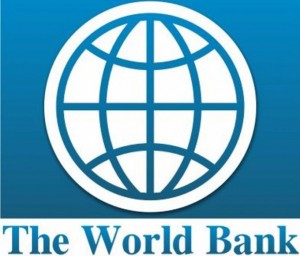World Bank gives Ghana $200m support to transform and diversify economy
 Ghana has received $200 million from the World Bank to help it to transform and diversify its economy by promoting private investment and firm growth in the non-resource base sectors.
Ghana has received $200 million from the World Bank to help it to transform and diversify its economy by promoting private investment and firm growth in the non-resource base sectors.
The funding from the International Development Association, which was approved by the World Bank Board of Executive Directors on Tuesday, would help through an integrated programme to build the country’s competitiveness and deliver sustainable jobs under the Ghana Economic Transformation Project (GETP).
A statement from the World Bank said the GETP would support improvements in the business environment and build capacity for investment attraction and retention as well as spatial development such as Special Economic Zones (SEZs) to address constraints to access industrial land.
The project will also support entrepreneurship and SME growth by strengthening the entrepreneurship support ecosystem, and it will include early stage financing for growth-oriented entrepreneurs.
“Ghana needs to invest more, diversify, and increase productivity if it is to achieve the Government’s current strategy of transforming the economy through higher, inclusive and sustainable growth with the private sector as the main driver,” said Pierre Laporte, World Bank Country Director for Ghana, Liberia and Sierra Leone.
“This operation directly aligns with the Government’s strategy and with the World Bank’s Africa regional strategy, which lays out economic transformation as a mechanism to create sustainable and inclusive growth.”
The GETP will support the Government’s strategy of transforming the Ghanaian economy to achieve inclusive and sustainable growth, with the private sector as the main driver to build the most business-friendly economy in Africa and foster the competitiveness of Ghanaian firms.
“This project applies the World Bank Group Maximizing Finance for Development approach, maximizing the Government of Ghana’s resources and will help ensure that IDA funding leverages and attracts complementary private financing,” said Douglas Pearce, Practice Manager Finance Competitiveness and Innovation Global Practice.
The interventions under the project are complementary to initiatives of other development partners focusing on the investment climate, skills development, industrial parks, access to finance, agricultural value chains and climate innovation. The interventions under this project will contribute to the World Bank Group’s twin goals by supporting opportunities for business growth and job creation in non-resource-based sectors.
“This is an ambitious private sector project and requires a high level of coordination and ownership to ensure a successful implementation.” explained Errol Graham, Program Leader EFI.
The World Bank’s International Development Association (IDA), established in 1960, helps the world’s poorest countries by providing grants and low to zero-interest loans for projects and programs that boost economic growth, reduce poverty, and improve poor people’s lives.
IDA is one of the largest sources of assistance for the world’s 75 poorest countries, 39 of which are in Africa. Resources from IDA bring positive change to the 1.5 billion people who live in IDA countries. Since 1960, IDA has supported development work in 113 countries. Annual commitments have averaged about $18 billion over the last three years, with about 54 percent going to Africa.
Source: GNA
